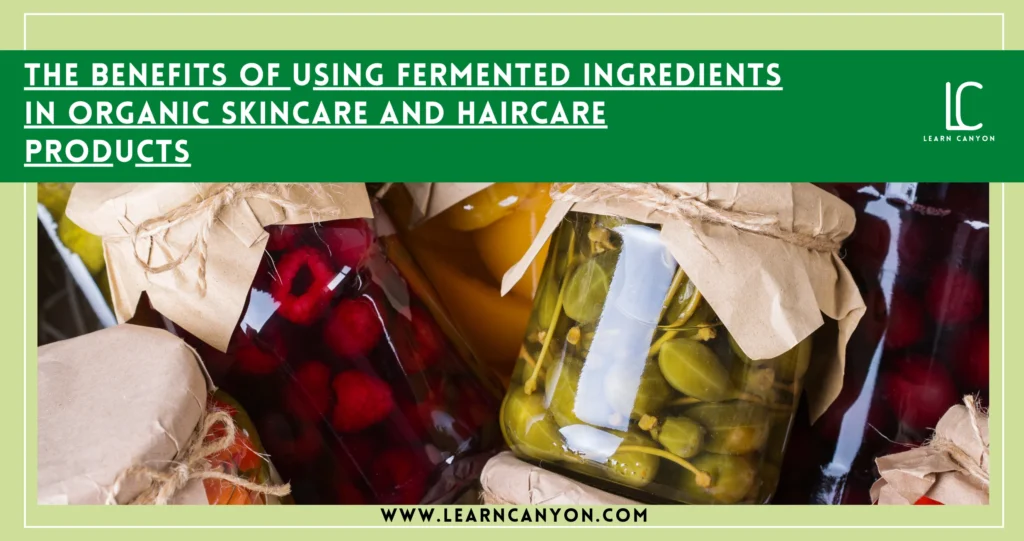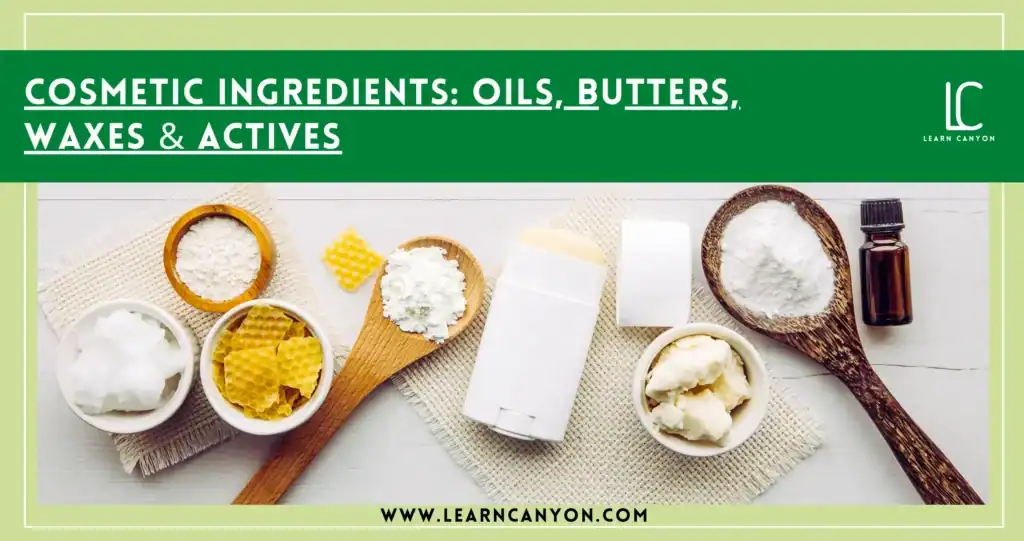Fermented ingredients can be a valuable addition to organic skincare and haircare products. They are becoming increasingly popular.They can aid in hydration, antioxidant protection, and irritation relief. Thus can serve cosmetic purposes.
As a formulator you can also look for fermented ingredients as activities when selecting organic skincare and haircare ingredients. Fermented ingredients are generally gentle on the skin and hair, making them an excellent choice for people with sensitive skin.
Now let us see what does fermented ingredients means
Fermented ingredients are those that have been broken down by microorganisms such as bacteria or yeast. This process can make the ingredients more bioavailable, which means they can be absorbed more easily by the skin and hair.
Fermentation can also increase the concentration of beneficial compounds such as antioxidants, vitamins, and minerals in ingredients. Fermented ingredients are therefore ideal for use in skincare and haircare products, as they can provide a variety of benefits.
Cleansers, toners, serums, moisturisers, masks, shampoos, and conditioners can all contain fermented ingredients.
How they are made and their history in skincare and haircare products
Plant-based ingredients, such as fruits, vegetables, grains, and herbs, are fermented with microorganisms such as bacteria or yeast. After that, the mixture is sealed in a container and left to ferment for a period of time, usually several days or weeks.
Microorganisms break down plant-based ingredients into simpler substances such as acids, enzymes, and peptides during the fermentation process.
Fermented ingredients have long been used in skincare and haircare products. Fermented rice water was used to cleanse, exfoliate, and hydrate the skin in ancient China, Korea, India and Japan. To soothe and soften the skin, fermented yogurt and buttermilk were also used.
Fermented ingredients have become increasingly popular in skincare and haircare products in recent years. This is due, in part, to increased awareness of the health benefits of fermented foods. People are becoming more interested in using fermented ingredients in their skincare and haircare routines as they learn about the benefits of fermentation.
Read the article on Fermentation in Skincare: Unlocking the Power of Probiotics
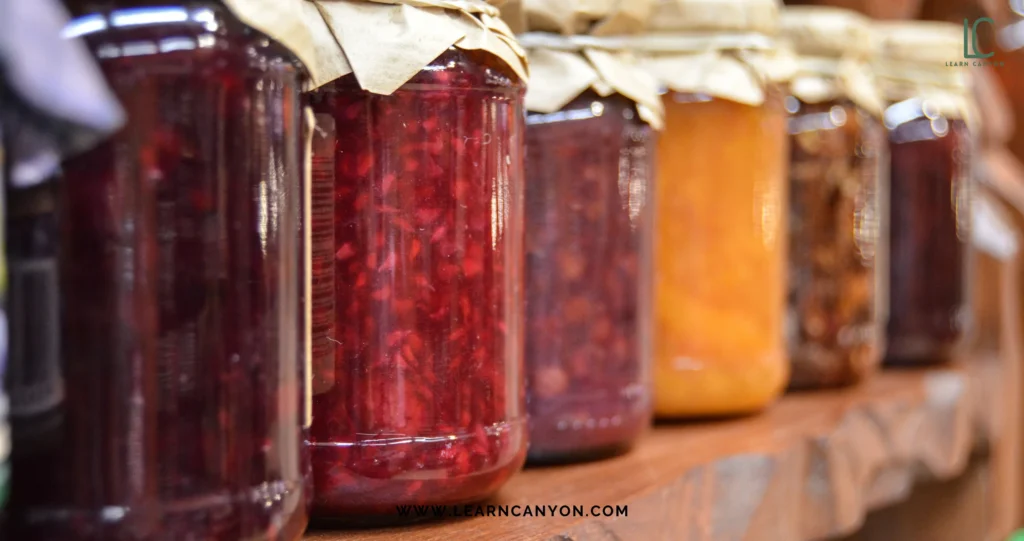
Benefits of using Fermented ingredients
Improved hydration: Fermented ingredients can aid in the improvement of the skin’s barrier function and moisture retention. This is due to the presence of humectants, which are substances that attract water to the skin.Fermented ingredients are generally gentle on the skin and hair, making them an excellent choice for reducing irritation
Reduced inflammation: Anti-inflammatory properties of fermented ingredients can help to soothe and calm irritated skin. This is especially beneficial for people who suffer from skin conditions like eczema and rosacea.Fermentation can help to reduce or eliminate allergens in plant-based ingredients, making them safer for allergy-prone persons.
Increased antioxidant protection: Fermented ingredients are high in antioxidants, which can protect the skin and hair from free radical damage. Free radicals are unstable molecules that can cause cell damage and premature aging by helping stimulate collagen production and improving the overall tone and texture of the skin. This can reduce the appearance of wrinkles and fine lines.
Brighter complexion: Fermented ingredients can help to exfoliate the skin and remove dead skin cells. This can reveal a brighter and more radiant complexion. Fermented ingredients can help to balance the skin’s microbiome, which is the community of beneficial bacteria that live on the skin. A healthy microbiome is essential for healthy skin.
Increased nutrient density: The fermentation process breaks down complex nutrients in plant-based ingredients into simpler forms that the body can absorb.Thus they can help to strengthen the hair shaft and prevent breakage. This can lead to thicker, fuller, and healthier hair. Fermentation aids in the preservation of nutrients and antioxidants in plant-based ingredients, making them more shelf-stable.
Fermented ingredients can provide specific benefits for certain skin and hair types in addition to these general benefits. Fermented ingredients, for example, can benefit people with dry skin, oily skin, acne-prone skin, and sensitive skin. They can also be beneficial to people who have damaged, dry, or thinning hair.
Important fermented materials which are used in cosmetics are
- Fermented ingredients like hyaluronic acid, lactic acid, and ceramides can help hydrate and moisturise dry skin.
- Fermented ingredients such as niacinamide and probiotics can help balance oil production and reduce the appearance of pores in oily skin.
- Fermented ingredients such as salicylic acid and lactic acid can help exfoliate the skin and unclog pores in acne-prone skin.
- Fermented ingredients like oat milk and honey are gentle on the skin and can help to soothe and calm irritation.
- Fermented ingredients such as rice water and coconut milk can help to strengthen the hair shaft and reduce breakage in damaged hair.
- Fermented ingredients like shea butter and avocado oil can help hydrate and moisturise dry hair.
- Fermented ingredients such as ginseng and rosemary can help stimulate hair growth.
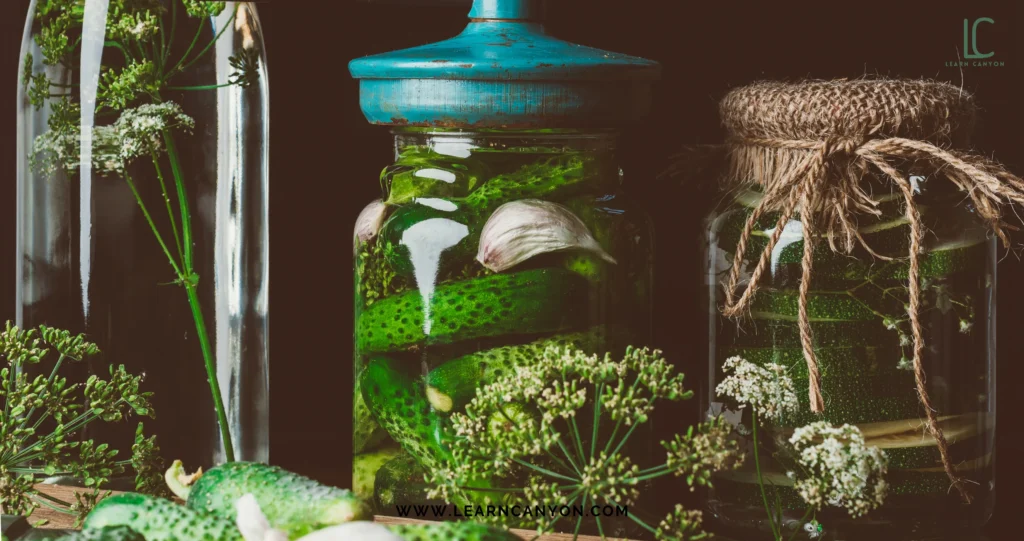
How do fermented ingredients differ from normal ingredients
Smaller, Simpler molecules :The fermentation process changes the ingredients because the ferments break down their molecular structure. Because the fermented ingredients have smaller, simpler molecules, they can penetrate the skin more deeply and quickly.
Acidic in nature: A fermented ingredient has a more acidic pH, which makes it more compatible with the skin (due to its naturally acidic pH).
Protection: Fermentation adds nutrients such as amino acids and peptides to the ingredient and increases the antioxidant content. They also become rich in enzymes, which can soothe and prevent skin inflammation. Essentially, the enzymes remove any “bad bacteria” from the skin and replace them with “good bacteria,” which helps to maintain skin balance better than the unfermented version.
The enzymes aid in the maintenance of our skin microbiome, which consists of over 500 different species of microorganisms that multiply on our skin every day. This variety is essential for the skin’s balance and allows it to be better protected against external aggressors. Because the less diverse the skin microbial flora is, the more likely unwanted pathologies such as eczema or acne will settle.
The skin microbiome can help the skin remain better and more protected in the long run by forming a protective barrier against external aggressions, inflammation, infections, and other skin diseases. The microbiome is an important part of the skin’s barrier function and plays an important role in its overall health.
A healthy, radiant skin with a balanced microbiome regenerates more effectively. It can cause dryness, sensitivity, breakouts, and other skin conditions when it is weak and damaged.
Natural defense: Ferments in cosmetics help to stimulate the skin’s natural defenses. Because of their antioxidant properties, they can also be used to purify acne-prone skin, help rebuild the skin barrier of sensitised skin, and protect the skin from pollution.
Fermented ingredients in cosmetics are more symbiotic with the skin and support skin functions without interfering with natural processes, making them less likely to cause sensitivity in skin care applications.Bio-fermented ingredients used in beauty products can improve skin and hair affinity.
Various cosmetic benefits, such as improved bioactive delivery, oxygen uptake, moisturization, and skin irritation reduction, can be increased and made more readily bioavailable for skin and hair care applications by initiating fermentation.
Specific properties of fermented ingredients
The popular fermented ingredients used in organic skincare and haircare products, along with their specific properties are:
Lactic acid is a mild alpha hydroxy acid (AHA) produced during the fermentation of milk or other carbohydrates. It is a natural exfoliator that can help remove dead skin cells, brighten the complexion, and improve overall skin tone and texture. Lactic acid is also a humectant, which means it draws water into the skin, assisting in its hydration.
Hyaluronic acid (HA): Hyaluronic acid is a naturally occurring substance in the skin that aids in moisture retention. It is one of the most effective humectants on the market, capable of holding up to 1000 times its weight in water. Because it is more easily absorbed by the body, fermented hyaluronic acid is even more effective than non-fermented hyaluronic acid.
Ceramides are lipids that occur naturally in the skin barrier. They help to hydrate the skin and protect it from environmental stressors. Fermented ceramides are more bioavailable than non-fermented ceramides, which means they can be absorbed more easily through the skin.
Peptides are short chains of amino acids that serve as protein building blocks. Fermented peptides are more effective than non-fermented peptides because they are easier to absorb through the skin. Peptides can aid in the stimulation of collagen production, the reduction of wrinkles, and the overall tone and texture of the skin.
Probiotics are live bacteria that are good for your gut health. Probiotic-containing fermented skincare and haircare products can help to balance the skin’s microbiome, which is the community of beneficial bacteria that lives on the skin. Healthy skin requires a healthy microbiome. Probiotics can also help to reduce inflammation and improve the barrier function of the skin.
Fermented rice water contains a high concentration of amino acids, vitamins, and minerals. It has been used for centuries in Asian cultures to improve the health of the skin and hair. Fermented rice water can hydrate and moisturise the skin while also reducing inflammation and strengthening the hair shaft.
Fermented green tea: Fermented green tea is high in antioxidants, which can help protect the skin and hair from free radical damage. It can also help to reduce inflammation and improve the barrier function of the skin.
Fermented honey is a natural humectant that can be used to hydrate and moisturise the skin. It has anti-inflammatory and antibacterial properties as well. Fermented honey can be used to treat skin conditions such as acne, eczema, and rosacea.
Carrot root ferment filtrate contains large amounts of antioxidants.
Natural ingredients fermented with grape, black tea, ginseng, seaweed, bamboo sap extract, red clove flower, hibiscus, snow lotus, and other herbs, fruits, and flowers provide unique healing properties to repair damaged skin.
The tips for incorporating fermented ingredients into your skincare and haircare are
Fermented ingredients are generally water-soluble, therefore they are simple to incorporate into a wide range of formulations of leave-on and rinse-off products in both the skin care and hair care sectors.
Here are some pointers on how to incorporate fermented ingredients into your product.
When fermented ingredients are in liquid form, they are the easiest to incorporate into a cosmetic formula. Because many cosmetic products contain a water-continuous phase, adding fermented ingredients with a glycerin, ethanol, glycol, or water base will easily dissolve in a cosmetic formula containing a water-continuous phase (such as most creams, lotions, shampoos, and conditioners).
It becomes more difficult when you are trying to add water-soluble fermented ingredients to an oil-based product, like a w/o ointment, balm, or oil. In this case, you would need to ‘reverse solubilise’ the material in a very low HLB solubilising material and only add a very small amount of fermented ingredients into the formula.
Some fermented ingredients only come in a powdered form. Where you are working with powdered fermented ingredients, you will first need to mix the powdered extract into whichever medium it is soluble in.
For example, if the fermented ingredients are water-soluble powders, then you will need to mix them in water and add it that way. If it is a fermented ingredient that comes as an oil-soluble powder, you will need to mix it in a little oil first.
Fermented ingredients can be added to the skin and hair in a variety of products, including:
Masks: Fermented ingredient masks are a great way to give your skin and hair a boost of hydration and nourishment. To apply a fermented ingredient mask, simply cleanse your skin or hair and apply the mask evenly.
Leave the mask on for the amount of time specified on the packaging, then rinse it off thoroughly with warm water.
Serums: Fermented ingredient serums are a lightweight and concentrated way to deliver fermented ingredients to the skin.
To apply a fermented ingredient serum, simply cleanse your skin and apply a few drops of the serum to your fingertips. Massage the serum into your skin until it is fully absorbed.
Shampoos and conditioners: Fermented ingredient shampoos and conditioners can help to cleanse, moisturize, and strengthen the hair. To use a fermented ingredient shampoo, simply wet your hair and apply the shampoo to your scalp. Massage the shampoo into your scalp and hair, then rinse it off thoroughly with warm water.
To use a fermented ingredient conditioner, simply apply it to your hair after shampooing. Comb the conditioner through your hair and leave it on for a few minutes, then rinse it off thoroughly with warm water.
Other products include:
- Cleansers
- Toners
- Moisturizers
- Leave-in conditioners
The use of fermented ingredients in a safe and responsible manner can help to reduce potential risks and side effects.
Fermented ingredients can be an excellent addition to any skincare or haircare product, but they must be used safely and responsibly. The following are some possible risks and side effects to be aware of:
Irritation: Some people, particularly those with sensitive skin, may find fermented ingredients irritating. Before using any new product, it is always best to perform a patch test on a small area of skin.
Allergic reactions: Fermented ingredients may cause allergic reactions in some people.
Microbial contamination: Fermented ingredients may contain live microorganisms, posing a microbial contamination risk.
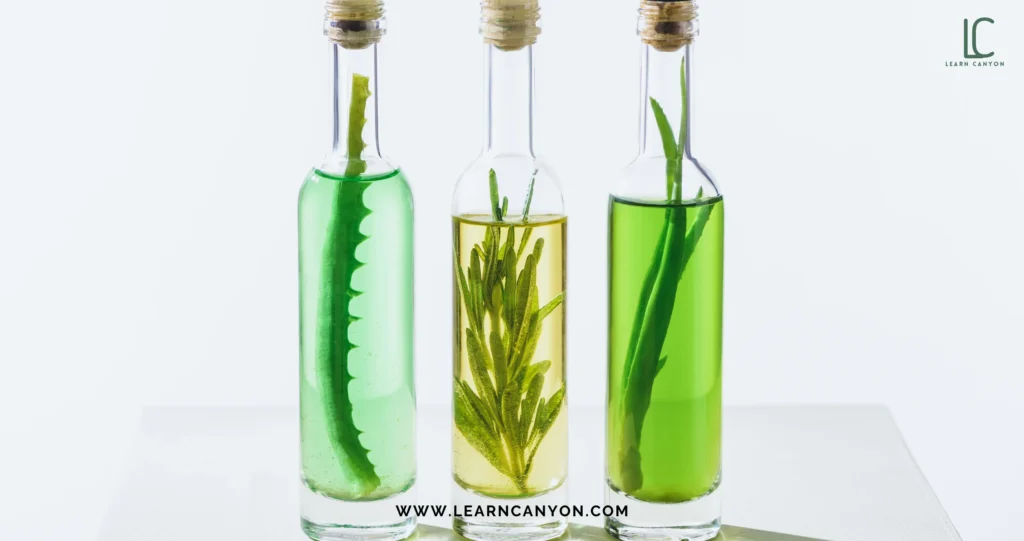
Tips for using fermented ingredients safely and responsibly:
- Choose products from reputable manufacturers. Good manufacturing practices will be in place at reputable companies to ensure the safety and quality of their products.
- Check its efficacy at lower concentrations.
- Mix thoroughly to ensure proper solubility.
- Check compatibility before adding a new fermented ingredient.
- There is very little difference between fermented and spoiled ingredients, so don’t get them mixed up.
- Don’t use spoiled fermented ingredients because they are harmful to both the product and the consumer.
- Please be patient. The full benefits of fermented ingredients take time to become apparent. Don’t be disheartened if you don’t see immediate results.
If you have any concerns about using fermented ingredients go through formulations blogs published by LEARN CANYON.
Conclusion
Fermented ingredients add value to any skincare or haircare formulation. They provide numerous advantages, including increased hydration, decreased inflammation, increased antioxidant protection, decreased irritation, and improved skin and hair texture and appearance.




